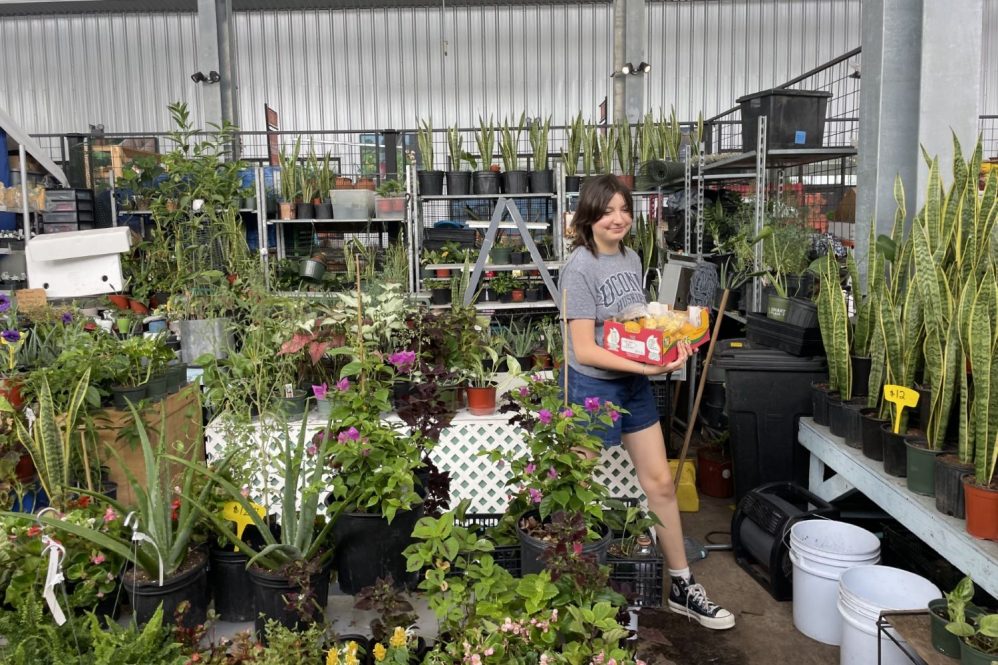Karina Cangas ‘25 (CAHNR) is spending her summer working on a research effort to help expand local food in New England through UConn’s Zwick Center for Food and Resource Policy.
Cangas is an undergraduate in the Department of Agricultural and Resource Economics (ARE) with a minor in business. This summer, Cangas is working with Assistant Professor Cristina Connolly and Zwick researcher and PhD student Alyssa McDonnell on an initiative led by New England Feeding New England, a nonprofit organization that focuses on expanding local food consumption in the region.
The program’s goal is to have 30% of food in New England procured locally by the year 2030. As part of this effort, the organization is engaging a team of researchers in each state to gather data. Cangas and Connolly are part of the Connecticut branch of this regional study.
“It’s a good way to support the local economy,” Cangas says. “It’s really important that we are eating locally, especially since the transportation and distribution of food in the United States causes a lot of greenhouse gas emissions.”
Cangas is collecting data from distributors in Connecticut to find out what kind and how much food is currently being procured locally – meaning from within Connecticut – by grocery stores, schools, hospitals, and bodegas.
As she calls distributors, Cangas is also recording how easy it is to get a hold of them and gather their information. This supports another aspect of New England feeding New England’s work: increasing the transparency of local food data.
Cangas has been working with UConn’s Zwick Center since January and has supported other studies on topics including composting programs in major U.S. cities and the status of Farm to School programs in Connecticut. The Zwick Center for Food and Resource Policy was established in 2010 after a generous gift from alumnus Charles J. Zwick.
Cangas says she has enjoyed the work at the Zwick Center, especially as it has given her the opportunity to get to know faculty outside of the classroom and participate in active research studies.
“It’s a really good way to connect with the faculty in the department, everybody is so open and accessible,” Cangas says.
Cangas says her experience working at the Zwick Center helped her realize she wanted to stay at UConn to pursue her master’s degree.
“I think that it has allowed me to gain a better sense of the skills that I have and what I’m capable of because the staff has supported me,” Cangas says.
Seeing the backend of research activities at the University and gaining hands-on experience working on studies with her professors fed Cangas’ desire to continue her academic career.
“I just know I could be doing more with a master’s and increase my skill set and be more impactful like I see my professors and mentors being,” Cangas says.
When Cangas was first looking at colleges, she knew she wanted to study something related to economics. When she found ARE at UConn, she knew that was where she wanted to be.
“Once I looked into it, I realized that’s what I was looking for with an economics major,” Cangas says. “I wanted to increase my knowledge on environmental sustainability and different ways that we can help the environment and I think the economic standpoint of it has helped me a lot.”
This work relates to CAHNR’s Strategic Vision area focused on Enhancing Health and Well-Being Locally, Nationally, and Globally.
Follow UConn CAHNR on social media



